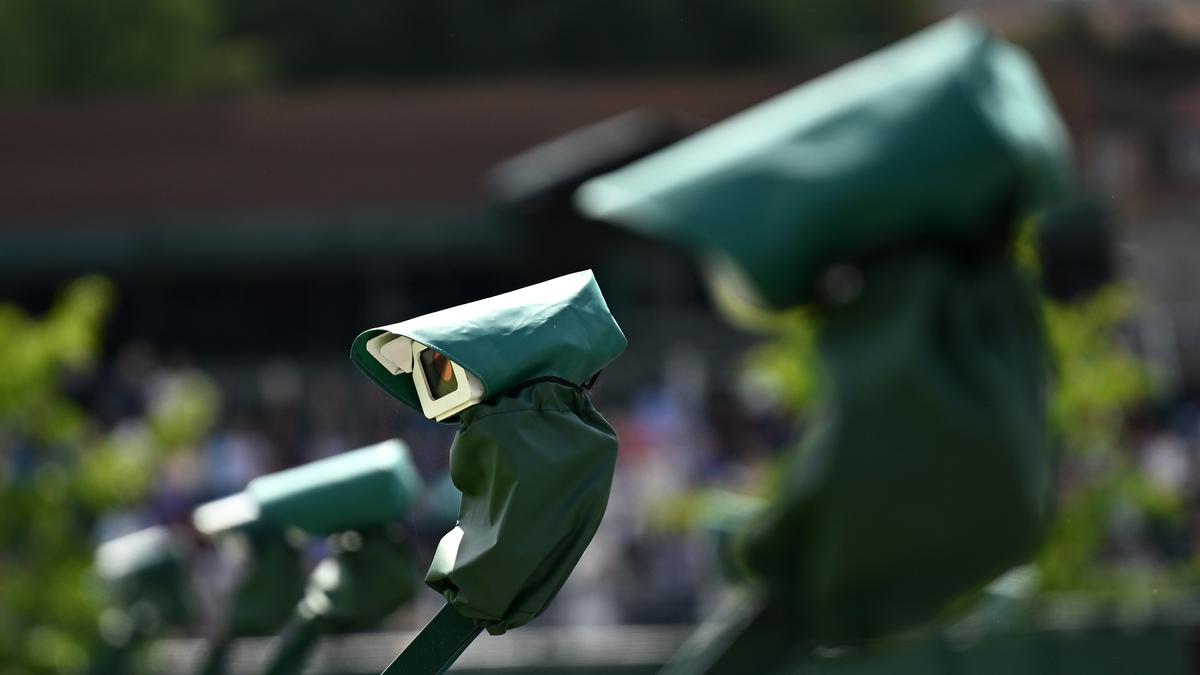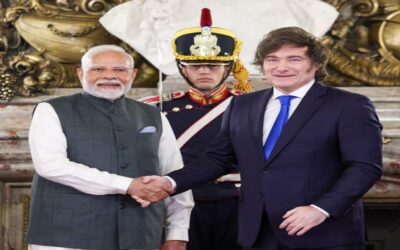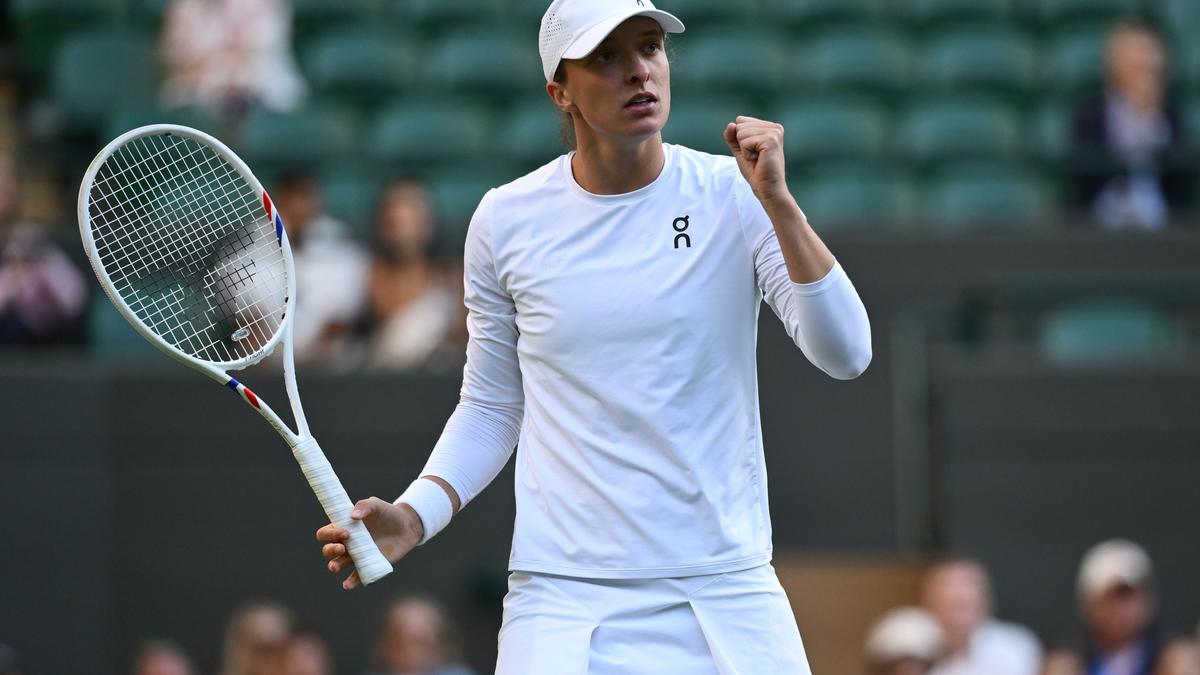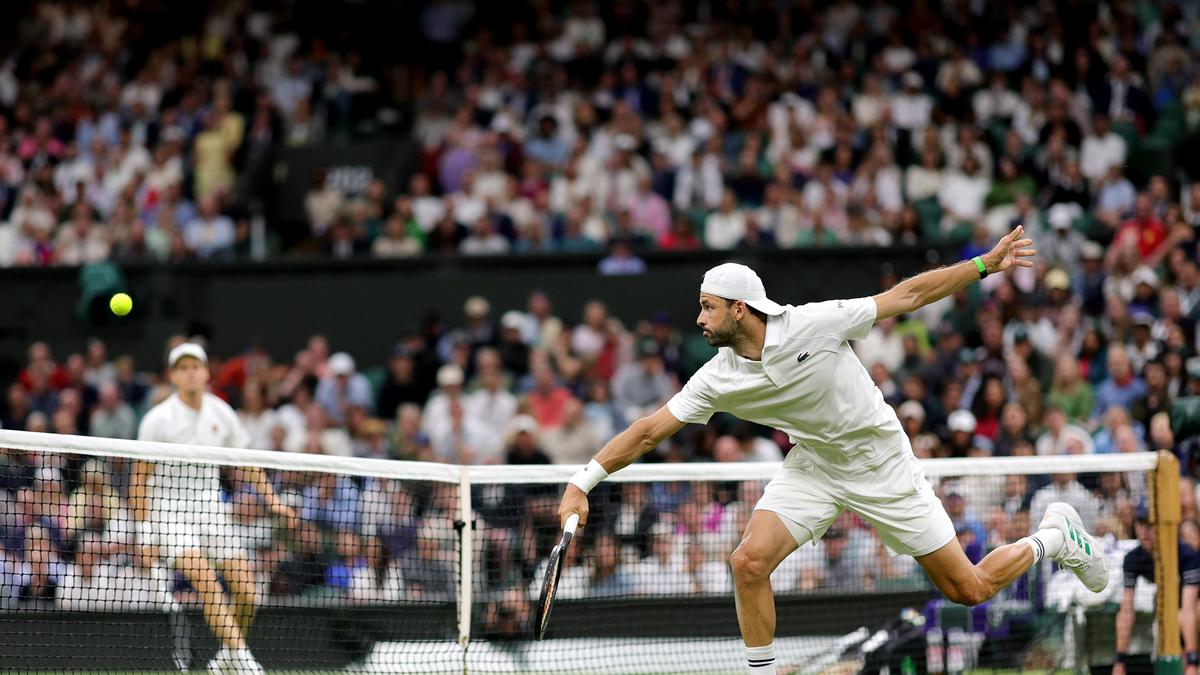Wimbledon 2025: Why is Wimbledon blaming human error for a mistake by its new electronic line-calling system?

The All England Club, somewhat ironically, is blaming “human error” for a glaring mistake by the electronic system that replaced human line judges this year at Wimbledon.
The CEO of the club, Sally Bolton, said Monday that the ball-tracking technology was “inadvertently deactivated” by someone for three points at Centre Court during Anastasia Pavlyuchenkova’s three-set victory over Sonay Kartal a day earlier in the fourth round. On one point, a shot by Kartal clearly landed past the baseline but wasn’t called out by the automated setup — called Hawk-Eye — because it had been shut off.
ALSO READ: Why Wimbledon 2025 will have no line judges for the first time: EXPLAINED
Bolton declined to say who made the mistake or how, exactly, it occurred or whether that person would face any consequences or be re-trained. She did note that there were other people at fault: the chair umpire, Nico Helwerth, and two who should have let him know the system was temporarily down — the review official and the Hawk-Eye official.
“We didn’t need to put line judges back on the court again,” Bolton said. “We needed the system to be active.”
Not really. But like most big tennis tournaments nowadays — the French Open is one notable exception — Wimbledon has replaced its line judges with cameras that are supposed to follow the balls on every shot to determine whether they land in or out.
There are those, particularly in the British media, who keep referring to this as part of the ever-increasing creep of AI into day-to-day life, but Bolton objected to the use of that term in this case.
“The point I would want to emphasize — and perhaps contrary to some of the reporting we’ve seen — is it’s not an artificial intelligence system. And it is electronic in the sense that the camera-tracking technology is set up to call the lines automatically, but it requires a human element to ensure that the system is functional,” Bolton said. “So it is not AI. There are some humans involved. And in this instance, it was a human error.”
Russia’s Pavlyuchenkova was one point from winning a game for a 5-4 lead in the first set against Britain’s Kartal on Sunday when a shot by Kartal landed long. But there was no ruling from Hawk-Eye.
After a delay, Helwerth decided the point should be replayed, which Pavlyuchenkova thought showed bias toward an opponent competing in her home country. With Hawk-Eye back up and running after a delay, Kartal won that game, but Pavlyuchenkova took that set and the match.
The All England Club looked into what happened and found that the line-calling system actually was off for three points before anyone noticed.
The system itself worked “optimally,” Bolton said repeatedly.
“In this instance, sadly,” she said, “it was the human part of the operation that made a mistake.”
Bolton said the system is shut down between matches — “and the humans are the people that need to do the activating and deactivating” — and someone accidentally did so during Pavlyuchenkova vs. Kartal.
Asked why, Bolton responded: “Well, I don’t know. It was a mistake, obviously. … I wasn’t sat there, so I don’t know what happened.”
She said Helwerth could have made a ruling himself on the controversial non-call, the way he did on the prior pair of points, but instead just decided to pause the match.
“I’m assuming,” Bolton said, “he felt he had not seen it properly.”
Pavlyuchenkova said after the match the official told her he thought the ball was out.
Players are divided on whether there even should be electronic rulings during matches — unless it is fool-proof — or whether there should be a return to Wimbledon’s old way of doing things.
Since 2007 through last year, there was a combination of the human touch and technology: There were line judges on court to make calls, but players were allowed to challenge and ask for a video reply of a point if they thought there was a mistake.
“It’s such a big match, big event,” Pavlyuchenkova said. “Since we have already automatic line-calling and so much invested into this, we should probably look into something else to have better decisions.”







